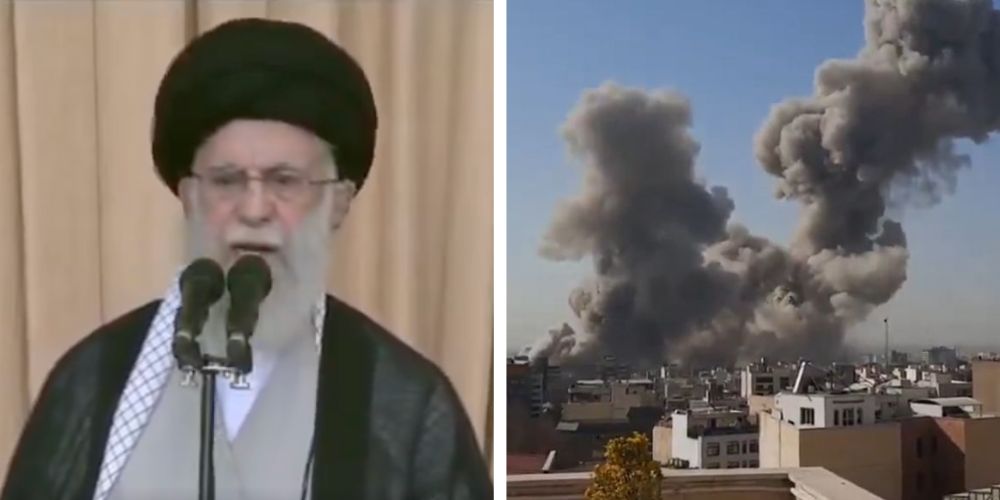The recent attack on Japanese and Norwegian oil tankers in the Gulf of Oman has ignited tensions between the United States and Iran. How the Trump administration navigates these perilous waters will define American foreign policy for years to come.
Caution and clearheaded thinking, not alarmism and adventurism, will best help the U.S. government achieve its strategic goals in the region.
Currently, evidence seems to point to Iranian culpability. The incident on Thursday was preceded by earlier attacks on shipping last month. Nonetheless, the president must be prudent. Caution and clearheaded thinking, not alarmism and adventurism, will best help the U.S. government achieve its strategic goals in the region.
On Thursday morning, the Kokuka Courageous ship was hit with some sort of explosive device. Shortly thereafter, the Front Altair was also hit.
“This assessment is based on intelligence, the weapons used, the level of expertise needed to execute the operation, recent similar Iranian attacks on shipping, and the fact that no proxy group operating in the area has the resources and proficiency to act with such a high degree of sophistication,” stated U.S. Secretary of State Mike Pompeo.
By Thursday, U.S. Central Command offered videos and a timeline of events as proof of Iranian complicity. These tensions have added to the case, pushed by some, for war against Iran.
[caption id="attachment_178434" align="aligncenter" width="1920"] Mike Pompeo[/caption]
Mike Pompeo[/caption]
However, recent history in the region does not necessitate such hasty action.
The administration should remember that this is not the first time tankers have been targeted. During the Iraq-Iran War, both the Iraqi and Iranian navies attacked oil ships traveling through the Strait of Hormuz, killing hundreds of sailors. In response the United States deployed naval assets, escorting ships and re-flagging tankers as American. Ultimately the support operations were successful, bringing an end to the so-called Tanker War in 1988.
The main lesson from the Iraq-Iran Tanker War should be one of caution.
The main lesson from the Iraq-Iran Tanker War should be one of caution. We are still getting the full picture. While it seems likely that Iran is the culprit that does not mean the U.S. must react with maximum force. Given that the owner of the Japanese tanker is disputing a key claim from Central Command, a quick assignation of blame may shed more heat than light.
The president should know how difficult and often faulty intelligence gathering can be. By giving the intelligence community more time to analyze, we may find that another actor is at fault. It very well could be that Iran did conduct the recent attacks. However given how certain elements within the Islamic Republic are often a state unto themselves, it also could be these attacks were not authorized from the top.
[caption id="attachment_178456" align="alignnone" width="2993"] CC Flickr[/caption]
CC Flickr[/caption]
While the United States gathers more intel, the administration is not without options.
The Fifth Fleet of the U.S. Navy can be bolstered and supported with increased naval assets, focusing on countermeasures against mines and small boats. Furthermore, the president should make it clear that if attacks continue, the administration will respond as we did during the old Tanker War.
We cannot conduct our foreign relations based on wishful thinking.
Any ships traveling through the Gulf should be escorted by the U.S. Navy and potentially re-flagged as American ships. It is true that this policy was not without its own dangers. Operations Earnest Will and Prime Chance lead to incidents of open hostilities. Thankfully, these remained isolated and minor.
Given the alternative, this is preferable to open war with Iran.
The Trump administration should emphasize that we are not going to pursue regime change. True, the Islamic Republic is an obstacle to American interests, and often a violently irresponsible actor in the region. No doubt a secular, friendly Iran would be a boon to many, including America. However, it is obvious that we are not, and should not be willing to violently replace the ruling regime.
Have any of our attempts to overthrow regimes in recent decades resulted in a better outcome for our interests?
We cannot conduct our foreign relations based on wishful thinking. Diplomacy needs to be conducted with states as they are, not as we wish them to be. While we carry a large stick, the administration should speak softly.
A fear of being overthrown likely empowers those within the regime who favor a bloody military confrontation. A committed stance of non-intervention combined with military protection should end this current crisis.





